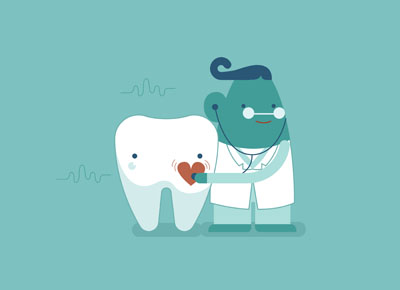 If you are like most people, the first thing that comes to your mind when one of your cavities starts causing you pain is to schedule an appointment with your dentist to apply fillings.
If you are like most people, the first thing that comes to your mind when one of your cavities starts causing you pain is to schedule an appointment with your dentist to apply fillings.
Fillings are the traditional treatment for cavities that is effective and fairly cheap. Especially since fillings can now consist of materials that look just like your natural teeth, making them undetectable.
What are cavities?
Cavities are holes that form in the tooth when the enamel of the tooth begins to decay, also known as dental caries. When a person does not seek treatment, the cavities grow larger as the infection spreads to the root of the tooth. Once the root is infected, a root canal or tooth removal procedure is necessary.
Tooth decay occurs when carbohydrate-rich foods are stuck between your teeth or on them for prolonged periods of time. These foods serve as a breeding ground for bacteria known as plaque that create acids that are strong enough to damage your enamel. Sugary foods, in particular, are associated with tooth decay.
Reversing tooth decay
There is a rather common misconception that professional treatment cannot remove tooth decay while leaving as much of the natural tooth as possible. We can help reverse tooth decay and cavities by making changes to the patient’s diet and practicing good oral hygiene habits.
Here is how to go about healing your cavities:
1. Say goodbye to sugar
Sugar is one of the main causes of tooth decay and a host of other health issues, so it is best to avoid consuming sugary products when you can. The bacteria that produce the acids that damage your teeth thrive in sugary environments. The fact sugary products are more likely to stick to your teeth does not help a bit.
If you must have something sweet, stay away from goods and beverages with processed sugars like candy, soda, and other sweet treats. Raw honey is a healthier substitute for sugar if you are wondering.
2. Remove foods that contain phytic acid
This acid is usually in nuts, grains, beans, and seeds. It is an enzyme inhibitor and mineral blocker that can cause serious health issues during regular consumption. Phytic-acid-rich diets can lead to mineral deficiencies like osteoporosis.
The phytic acid binds nutrients like magnesium, calcium, zinc, and iron, preventing your body from properly utilizing them. Eating foods that have high amounts can reduce your absorption of essential nutrients by up to 60 percent.
Phytic acid does not just prevent your body from absorbing essential nutrients. It also sucks out minerals from your bones, body, and teeth.
Phytic-acid-rich diets can also lead to a lack of appetite and other digestive disorders. Modern high-phosphate fertilizers increase the phytic acid levels in food products, so stick to organic products. Avoid grains, nuts, and seeds as much as possible.
3. Use a mineral-rich toothpaste
A quality toothpaste can help you reverse cavities. Find one that contains essentials like fluoride, calcium, and magnesium and use it twice a day.
How can you really use this information?
Interested in reversing your cavities? Contact a dentist to find out more about the changes you will have to make to your diet.
Request an appointment in our Ijamsville dental office here: https://urbanafamily.com. Call us at (301) 605-1157 for more information from Urbana Family Dental Care.
Related Posts
Habits That Get You Whiter Teeth
Who wouldn't want to have whiter teeth? Having a set of white, shiny teeth makes you feel confident when you interact with others. It also affects the way those you interact with perceive you. Shiny …
A Family Dentist Discusses the Importance of Oral Hygiene Care
Family dentists are a great source of information when it comes to how to properly take care of oral health. They are trained in general dentistry, which makes them experts at helping patients of all …
Tips for Picking a Toothbrush and Toothpaste
Picking a toothbrush and toothpaste is an important part of oral hygiene. Brushing twice a day is the best protection from tooth decay and gum disease. It helps remove food particles and plaque that are …
Important Preventive Dentistry Visits
Preventive dentistry is important in maintaining oral health. Visits in this field of dentistry involve treatment and dental education. These appointments aim to prevent gum disease, cavities, and enamel wear. They …
